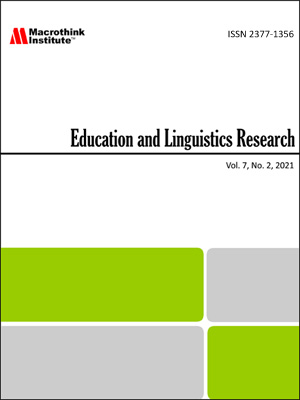Internationalization of Higher Education and the Role of Languages: Insights from the Global North and the Global South
DOI:
https://doi.org/10.5296/elr.v10i1.22006Abstract
This study discusses the role of languages in the process of internationalization of higher education reporting on partial results of a project whose aim is to analyze the role of languages, technologies, and mobility (physical and virtual) in the process of internationalization of higher education contrasting data from universities in the Global North and Global South. Data of this study come from a questionnaire with open and semi-structured questions based on Amorim’s (2020) matrix of institutional self-assessment of internationalization of higher education administered to 11 universities located in eight different countries, six in the Global North (Europe) and five in the Global South (Latin America and Asia). The answers to the questionnaire were contrasted and analyzed against the literature of the field and information collected in the universities’ webpages and observations carried out during technical visits to the universities involved. Overall results of the study point to differences between Global North/Global South in approaches to IHE with the former being more proactive and benefited from this process. Corroborating previous analyses of the role of languages in the process of IHE (e.g., Guimarães et al., 2019; Finardi et al., 2016) results of the present study suggest that national languages in general and the status of English in particular, affect and intersect with the process of IHE.

